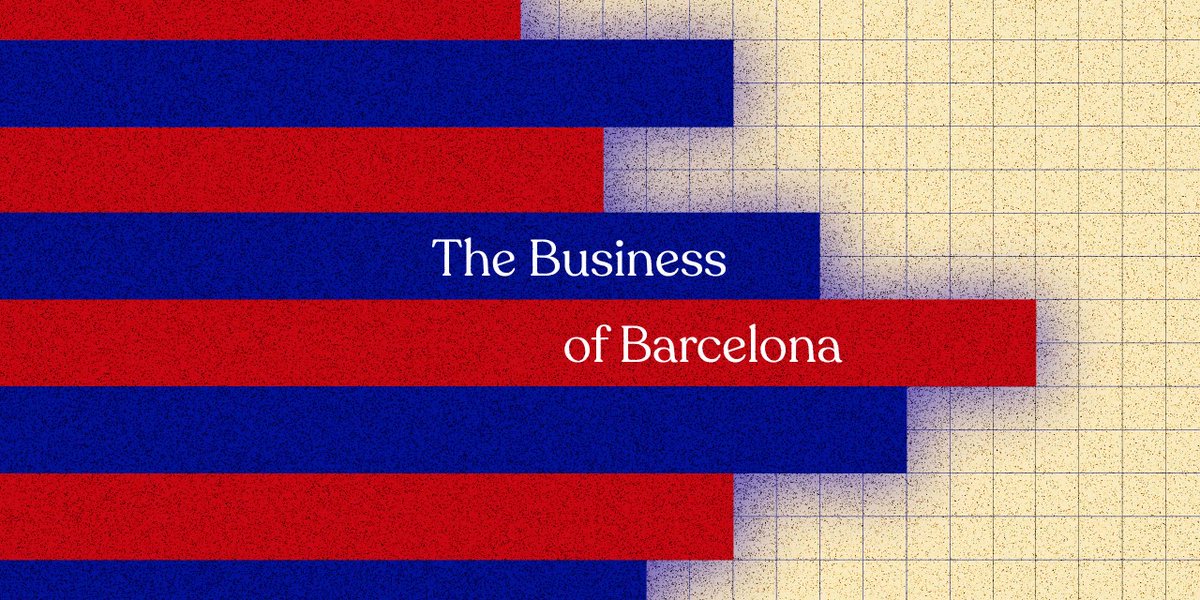Once worth over $8B, Chuck Feeney is now broke.
He did it on purpose.
This is the story of a secretive billionaire hell-bent on giving his money away.
/thread 👇👇
He did it on purpose.
This is the story of a secretive billionaire hell-bent on giving his money away.
/thread 👇👇
1
Feeney was born in 1931, during the Great Depression. He was the son of an insurance underwriter and a nurse.
He had a simple, working-class upbringing. He credits his charitable spirit to his catholic high-school.

Feeney was born in 1931, during the Great Depression. He was the son of an insurance underwriter and a nurse.
He had a simple, working-class upbringing. He credits his charitable spirit to his catholic high-school.


2
The Korean War broke out in 1950. Just nineteen at the time, Feeney served in the US Airforce as a radio operator. He was stationed in Japan.
As it happens, that experience traveling by plane would prove important.
The Korean War broke out in 1950. Just nineteen at the time, Feeney served in the US Airforce as a radio operator. He was stationed in Japan.
As it happens, that experience traveling by plane would prove important.

3
After returning from Japan, Feeney attended Cornell University. It was there that he met Robert Warren Miller.
The two men couldn't have had different backgrounds. While Feeney was blue-collar, Miller was blue-blood.
He could trace his ancestry directly to the Mayflower.
After returning from Japan, Feeney attended Cornell University. It was there that he met Robert Warren Miller.
The two men couldn't have had different backgrounds. While Feeney was blue-collar, Miller was blue-blood.
He could trace his ancestry directly to the Mayflower.

4
In 1960, Miller and Feeney decided to go into business.
Through his service, Feeney had noticed the improved aviation infrastructure in Asia. He would also have been aware of the increased spending power of American servicemen abroad.
A commercial enterprise brewed.
In 1960, Miller and Feeney decided to go into business.
Through his service, Feeney had noticed the improved aviation infrastructure in Asia. He would also have been aware of the increased spending power of American servicemen abroad.
A commercial enterprise brewed.
5
"Tourists International" set up its first shop in Hong Kong. The store sold booze to members of the US military flying out of the country.
Simple and effective.
"Tourists International" set up its first shop in Hong Kong. The store sold booze to members of the US military flying out of the country.
Simple and effective.
6
The business was a hit.
Tourist International began selling tobacco and even cars. They also expanded geographically, moving into Europe and America.
A breakthrough was securing exclusive rights to duty-free sales in Hawaii.
Feeney and Miller became very rich men.
The business was a hit.
Tourist International began selling tobacco and even cars. They also expanded geographically, moving into Europe and America.
A breakthrough was securing exclusive rights to duty-free sales in Hawaii.
Feeney and Miller became very rich men.
7
By 1982, Feeney was worth hundreds of millions. But he lived frugally.
He still flew coach. He had a $15 watch. He even carried his papers in a plastic bag.
So he hatched a plan. A secret plan.
By 1982, Feeney was worth hundreds of millions. But he lived frugally.
He still flew coach. He had a $15 watch. He even carried his papers in a plastic bag.
So he hatched a plan. A secret plan.
8
Does the name Atlantic Philanthropies mean anything to you?
If the name seems generic, that's by design. As Feeney transferred $500M to the charity in 1984, he didn't want anyone to notice.
Not even Warren knew his partner had given away the entirety of his 38.75% stake.
Does the name Atlantic Philanthropies mean anything to you?
If the name seems generic, that's by design. As Feeney transferred $500M to the charity in 1984, he didn't want anyone to notice.
Not even Warren knew his partner had given away the entirety of his 38.75% stake.

9
Why didn't Feeney keep any of the company for himself. As he said to Forbes:
"I concluded that if you hung on to a piece of the action for yourself, you’d always be worrying about that piece.”
Why didn't Feeney keep any of the company for himself. As he said to Forbes:
"I concluded that if you hung on to a piece of the action for yourself, you’d always be worrying about that piece.”
10
Atlantic grew to manage $3.5B, distributing grants to AIDS prevention, drug abuse reform, and teenage pregnancy support.
Because the charity was based in Bermuda, US disclosure documents were not necessary. That kept Feeney anonymous.

Atlantic grew to manage $3.5B, distributing grants to AIDS prevention, drug abuse reform, and teenage pregnancy support.
Because the charity was based in Bermuda, US disclosure documents were not necessary. That kept Feeney anonymous.


11
In 1997, Feeney had to come clean.
Tourist International, now called Duty Free Shops (DFS), sold to LVMH. Since Atlantic held 38.75% of the business, the truth came out.
For his secrecy (and efficacy), Feeney earned the nickname "the James Bond of Philanthropy."
In 1997, Feeney had to come clean.
Tourist International, now called Duty Free Shops (DFS), sold to LVMH. Since Atlantic held 38.75% of the business, the truth came out.
For his secrecy (and efficacy), Feeney earned the nickname "the James Bond of Philanthropy."
12
Over the past 23 years, Feeney has continued to give away money at an astounding rate.
That's been helped by the fact that he seems to find ways to keep making it.
Feeney was an investor in Facebook, Priceline, E-Trade, and Alibaba.
Over the past 23 years, Feeney has continued to give away money at an astounding rate.
That's been helped by the fact that he seems to find ways to keep making it.
Feeney was an investor in Facebook, Priceline, E-Trade, and Alibaba.
13
Today, Feeney has just $2M.
He lives in a small apartment in San Francisco similar to a "freshman dorm."
Over the course of his life he's given away $8B. To put that in perspective, that's 375,000% more money than his current net worth.
Today, Feeney has just $2M.
He lives in a small apartment in San Francisco similar to a "freshman dorm."
Over the course of his life he's given away $8B. To put that in perspective, that's 375,000% more money than his current net worth.
14
Much of Feeney's money has gone to educational institutions. His single largest donation is to Cornell.
(@Gladwell would have concerns about this, though he has given to smaller institutions).
He's also contributed to grassroots political movements, healthcare reforms.



Much of Feeney's money has gone to educational institutions. His single largest donation is to Cornell.
(@Gladwell would have concerns about this, though he has given to smaller institutions).
He's also contributed to grassroots political movements, healthcare reforms.




15
A few other statistics:
- $3.6B to education
- $870M to human rights (esp to abolish death penalty)
- $76M to support the passage of Obamacare
- $270M to improve public healthcare in Vietnam
- $176M to the Global Health Brain Institute
A few other statistics:
- $3.6B to education
- $870M to human rights (esp to abolish death penalty)
- $76M to support the passage of Obamacare
- $270M to improve public healthcare in Vietnam
- $176M to the Global Health Brain Institute
16
On September 14th of 2020, Feeney shut Atlantic down.
His goal was not to create an institution that continued after his death but to give his wealth away during his lifetime.
He'd succeeded.
On September 14th of 2020, Feeney shut Atlantic down.
His goal was not to create an institution that continued after his death but to give his wealth away during his lifetime.
He'd succeeded.

16
There are many lessons that to be taken from Feeney. We should hope that his secrecy in life does not preclude our study of him. Above all, the reminder not to pursue wealth its own sake. As Feeney said:
"I don't dislike money, but there's only so much money you can use."
There are many lessons that to be taken from Feeney. We should hope that his secrecy in life does not preclude our study of him. Above all, the reminder not to pursue wealth its own sake. As Feeney said:
"I don't dislike money, but there's only so much money you can use."
If you're interested in business, technology, and the humans that make innovation interesting, sign up for The Generalist.
Maybe you'll like it. Maybe not. But I think it's worth trying.
readthegeneralist.com
h/t @justinpclapper for this story.
Maybe you'll like it. Maybe not. But I think it's worth trying.
readthegeneralist.com
h/t @justinpclapper for this story.
• • •
Missing some Tweet in this thread? You can try to
force a refresh








